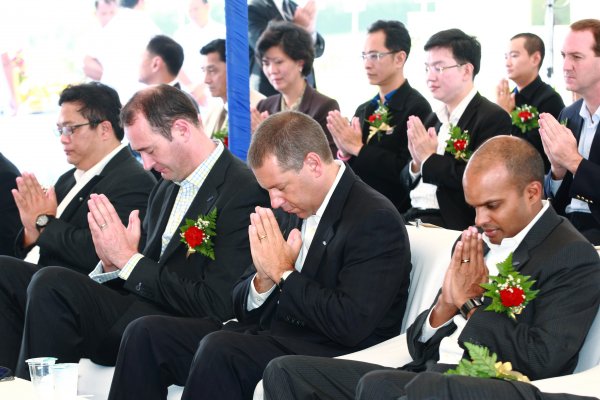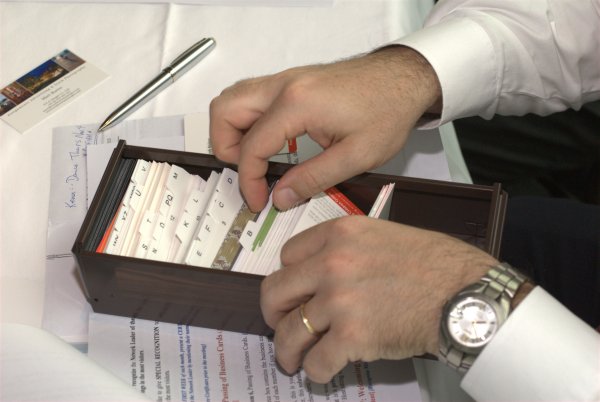Business Culture: The Business Experience
Business Style
Situated in Southeast Asia, Thailand is the only country in the region that has never been under the rule of a European nation. Thais are very proud of their heritage. Most are tolerant of individualism in business, yet find security and comfort in belonging to a harmonious group. A common Thai expression is "Mai pen rai" ("Never mind"), which basically means that the purpose of life is to enjoy, and this value is found in Thai business culture as well. Most Thais will only do business with people they like, so establishing a personal relationship is an integral part of success in Thailand.
Business deals in Thailand tend to move more slowly than Westerners may be accustomed to, as formal introductions from local contacts are usually required to even begin working relationships. There will typically be a lengthy relationship-building stage, as well as many internal discussions before a decision is announced. Your timeline might vary based on the background of your contacts and the structure of the firm or firms you are interested in: many businesspeople in Thailand are ethnically Chinese, and many Thai firms are owned by parent companies in China, so it is sometimes necessary for visiting businesspeople to secure business deals in both Thailand and China. The age of your contacts may have an impact on your experience as well, since many younger Thai businesspeople are experienced in international trade and have adapted to Western-like processes in business.
Thailand is predominantly a Buddhist country, and this has affected the business culture, alongside other regional cultural forces. Thais treat their business counterparts with respect and honor, always allow others to save face, and try to maintain harmony in business relationships. Business visitors will be more successful if they have calm demeanors, avoid confrontations, and follow etiquette rules related to hierarchy.
Relationship Building
Most Thais will only do business with people they know and like, as they consider business personal, and therefore based on trust. Your Thai contact will want to get to know you and build up sufficient rapport before discussing anything business-related. In fact, the first meeting will generally feature non-business-related discussions only. Meetings will generally begin and end with small talk. It is very common for business visitors to be invited to lunch and dinner during business trips, as well. This is a normal part of the relationship-building process in Thailand, and a way for both parties to get to know one another outside of the workplace setting. Some common conversation topics include personal inquiries about the visitor's family or age. It is also not uncommon for Thais to make personal remarks, such as commenting that the visitor has gained weight since the last visit. These comments should not be taken as insults, as they are simply a part of the Thai relational style.
Hierarchy and rank are very important in Thai culture, and this is true across companies of different sizes and types. In fact, most Thais will immediately try to understand the visitor's place within his or her own company's hierarchy, so that they will know how to treat the visitor. Personal questions assist in this process, and so does observing the visitor's appearance, in terms of noticing clothing and so forth. Titles play a significant role within Thai companies, age is important as well. Visitors should always greet the eldest Thai contact first, and should allow the visiting team member with the highest rank to lead the meeting and conduct introductions.
Etiquette
Visitors should always arrive at Thai business meetings on time to demonstrate respect for their counterparts. Remain standing until being told where to sit, as hierarchy will influence the seating plan. While foreign visitors will not be expected to understand all the delicate intricacies of the traditional Thai greeting, they may want to reciprocate the wai, or the common greeting given by the lower-status person to the higher-status person. The wai is both a greeting and a sign of respect, and it is done by raising joined palms (in the prayer position) and then touching your fingertips to a point on your body between the chest and the forehead. Many Thai businesspeople will offer a simple handshake to foreign visitors, but if they offer the wai, then business visitors need to reciprocate with the same gesture. Visitors should never offer the wai to wait staff, children, laborers, or store clerks—simply nod and smile instead.
Most Thai businesspeople address one another by their first names only, and will only use last names during formal occasions. However, they do use the honorific title Khun (for both men and women) before first names. When greeting your Thai contacts, introduce yourself with your first name only. Also, always introduce the lower-status person first in group or team introductions. Business cards are exchanged during initial introductions. Visitors should have business cards printed in Thai on one side. Present the business card to the Thai contact with two hands or your right hand. Always accept your contact's card with both hands. Examine the card and make a comment about it before placing it in a card case or on the table. Never write on someone's card or put it in a back pocket.
It is a show of respect to use indirect eye contact when speaking with Thai contacts, especially senior leaders. Modesty and fitting in are the keys to success, so mirror the body language of the other attendees. There is usually no physical contact between men and women in public, including the business setting.
Article written for World Trade Press by Kerrie Main.
Copyright © 1993—2024 World Trade Press. All rights reserved.

 Thailand
Thailand 



